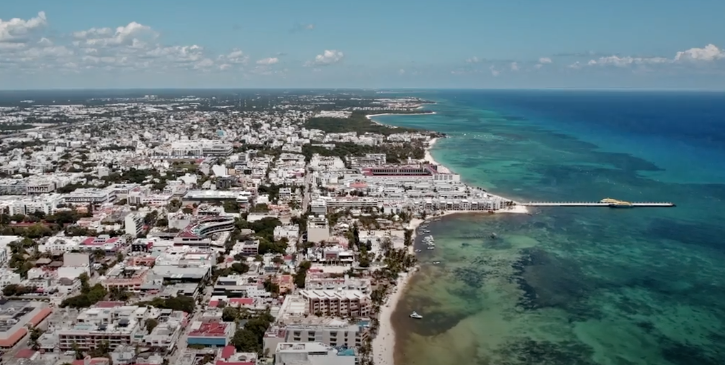2024 Relocation Guide (part 10): Is it Safe for Americans?

Is It Safe for Americans to Buy Real Estate in Mexico? Essential Facts To Know BEFORE you buy
Buying property in Mexico can offer both rewarding investment opportunities and lifestyle advantages for foreign buyers. However, it’s essential to understand the country’s unique laws, property regulations, and cultural nuances to ensure a smooth transaction. This guide breaks down the essential steps, legalities, and best practices for buying property in Mexico, specifically for international buyers looking to invest safely and confidently.
This article covers everything you need to know, from legal insights to avoiding scams, ensuring you can invest safely. Or if you feel more comfortable talking directly to a licensed real estate agent who can answer all your questions just visit us at mycasa.mx and send us an email at info@mycasa.mx.
Table of Contents
- Can Foreigners Buy Property in Mexico?
- Understanding the Fideicomiso (Real Estate Trust)
- Avoiding Ejido Land and Common Pitfalls
- Key Financial and Tax Considerations
- Hiring a Mexican Attorney for Legal Assistance
- Navigating Cultural Differences in Real Estate Negotiations
- Other articles about owning property in Mexico
- FAQs on Buying Property in Mexico
Can Foreigners Buy Property in Mexico?
Yes, foreigners can legally buy property in Mexico, but restrictions apply within the restricted zone (50 kilometers from coastlines or 100 kilometers from international borders). Within these areas, foreigners must purchase property through a fideicomiso, a bank-managed trust that grants full property rights while complying with Mexican ownership laws.
Understanding the Fideicomiso (Real Estate Trust)
 A fideicomiso is essential for foreigners buying in restricted zones, allowing them to enjoy full ownership rights while the property title remains legally held by a Mexican bank. Setting up a fideicomiso requires annual fees, but it’s typically a straightforward process, with trusts valid for 50-year terms, renewable indefinitely. This structure is secure and allows full control over the property, including the ability to sell or pass it to heirs.
A fideicomiso is essential for foreigners buying in restricted zones, allowing them to enjoy full ownership rights while the property title remains legally held by a Mexican bank. Setting up a fideicomiso requires annual fees, but it’s typically a straightforward process, with trusts valid for 50-year terms, renewable indefinitely. This structure is secure and allows full control over the property, including the ability to sell or pass it to heirs.
Avoiding Ejido Land and Common Pitfalls
 .
.
One of the most critical aspects of buying property in Mexico is understanding the status of the land. Some land in Mexico is classified as ejido, communal farmland that generally cannot be legally sold or purchased by private parties. Purchasing ejido land, even inadvertently, can lead to significant legal issues. To avoid pitfalls, ensure the following:
- Title Verification: Confirm the land is private property (propiedad privada) with a clean, transferable title.
- Due Diligence: Engage with reputable real estate professionals and insist on thorough background checks.
- Physical Verification: Visit the property in person or arrange a virtual tour, avoiding deals with sellers who pressure you to buy sight unseen.
For a more complete breakdown of EJIDO LAND and those considerations, check out this ARTICLE.
Key Financial and Tax Considerations
Buying property in Mexico involves certain financial factors, including capital gains tax, property taxes, and closing costs. Here’s what to expect:
- Capital Gains Tax: Non-residents pay a capital gains tax of either 25% of the gross sales value or approximately 35% of the net gain upon resale.
- Property Taxes: Known as predial, property taxes in Mexico are generally low but vary depending on the region and property value.
- Closing Costs: Budget for closing costs (usually 4-7% of the property value), which may include notary fees, registration, and legal fees.
For a detailed breakdown of closing costs, check out this Article
Hiring a Mexican Attorney for Legal Assistance
 Engaging a licensed Mexican attorney is crucial for conducting due diligence and managing legal formalities. A real estate attorney helps verify titles, assess zoning, and review all contracts to ensure compliance with Mexican laws. This is particularly important for navigating the fideicomiso process and securing accurate legal representation.
Engaging a licensed Mexican attorney is crucial for conducting due diligence and managing legal formalities. A real estate attorney helps verify titles, assess zoning, and review all contracts to ensure compliance with Mexican laws. This is particularly important for navigating the fideicomiso process and securing accurate legal representation.
Navigating Cultural Differences in Real Estate Negotiations
Building rapport and understanding local customs can enhance your negotiation experience in Mexico. Here are a few cultural insights:
- Establish Personal Connections: Mexicans value personal interactions, so take time to build trust through friendly conversations and social interactions.
- Respectful Address: Use proper titles like Señor or Señora and maintain eye contact as signs of sincerity.
- Gestures of Appreciation: A small token, such as a local souvenir, can help establish goodwill with the community and smooth negotiations.
Other Articles About Owning Property in Mexico
Retire in Paradise: Top 10 Places for Expats 2024
Relocation Guide 2024 (part 9): 10 Warning Signs...
Top Gated Communities in Playa del Carmen
Top Cancun Real Estate for Sale
Best Tulum Neighborhoods for Real Estate
Frequently Asked Questions
Can foreigners buy property in Mexico?
Yes, foreigners can buy property in Mexico, but there are restrictions in the "restricted zone" such as coastal areas and borders, where they must use a fideicomiso, a trust held by a Mexican bank.
What is a fideicomiso, and why is it necessary?
A fideicomiso is necessary for foreigners to own property in Mexico's restricted zones as it allows them to have all ownership rights while the legal title is held by a Mexican bank's trust department.
How can I avoid property scams in Mexico?
To avoid property scams in Mexico, conduct thorough due diligence, work with certified real estate agents, and insist on seeing the property in person or through a virtual tour. Avoid sellers who pressure you with 'one-time offers'.
What are the financial considerations when buying property in Mexico?
When buying property in Mexico, it's important to consider factors such as capital gains tax, property taxes, closing costs, and real estate agency fees. Non-residents may be subject to a capital gains tax of 25% on the gross sales value or about 35% on the net gain.
Why is legal assistance important in Mexican real estate transactions?
Legal assistance is important in Mexican real estate transactions because it ensures proper representation, compliance with Mexican laws, and thorough due diligence, such as title searches and contract reviews. Engaging a licensed Mexican attorney can help navigate the complexities of property transactions.
Updated 1/16/25











Comments (0)